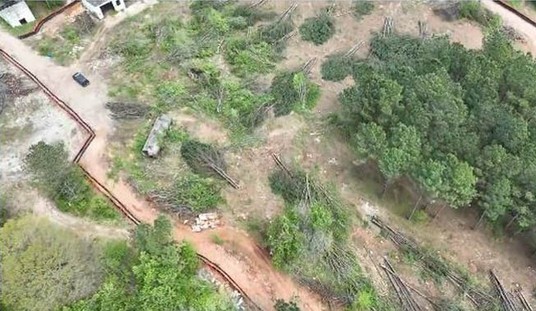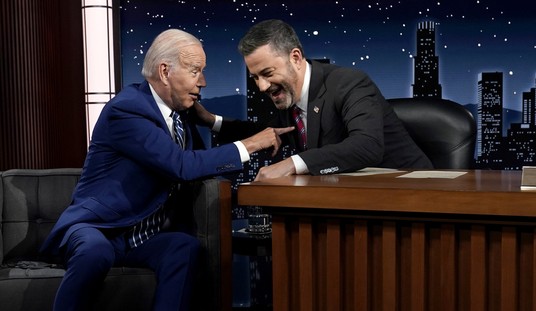Islamic State is thought to be holding sway over half of Syria’s landmass after its seizure of Palmyra, where it has reportedly begun massacring a rebellious tribe and faces no opposition to sacking the city’s ancient ruins…
Isis seized Palmyra on Wednesday night after a week-long siege that led to the collapse of forces loyal to Bashar al-Assad. The militants are drawing closer to his strongholds of Homs and Damascus and are severing supply lines to Deir Ezzor in the east, which faces an overpowering Isis crackdown…
Control of Palmyra leaves Isis with unopposed access to the city’s magnificent ruins, amid fears that they will destroy significant chunks of Syria’s heritage as it did in Iraq.
But more significantly, Isis controls vast swaths of Syria, from Palmyra to Raqqa and Deir Ezzor in the country’s west, a tract that the Syrian Observatory for Human Rights estimates to be 95,000 sq km, or more than half Syria’s landmass. With its seizure of the Arak and al-Hail gas fields near Palmyra, it also controls much of the country’s electricity supply – those two fields power much of the Syrian regime’s strongholds in the west.
Jeffrey Goldberg: You’ve argued that ISIS has been on the defensive. But Ramadi just fell. Are we actually losing this war, or would you not go that far?
President Barack Obama: No, I don’t think we’re losing, and I just talked to our CENTCOM commanders and the folks on the ground. There’s no doubt there was a tactical setback, although Ramadi had been vulnerable for a very long time, primarily because these are not Iraqi security forces that we have trained or reinforced. They have been there essentially for a year without sufficient reinforcements, and the number of ISIL that have come into the city now are relatively small compared to what happened in [the Iraqi city of] Mosul. But it is indicative that the training of Iraqi security forces, the fortifications, the command-and-control systems are not happening fast enough in Anbar, in the Sunni parts of the country. You’ve seen actually significant progress in the north, and those areas where the Peshmerga [Kurdish forces] are participating. Baghdad is consolidated. Those predominantly Shia areas, you’re not seeing any forward momentum by ISIL, and ISIL has been significantly degraded across the country…
It is important to have a clear idea of the past because we don’t want to repeat mistakes. I know that there are some in Republican quarters who have suggested that I’ve overlearned the mistake of Iraq, and that, in fact, just because the 2003 invasion did not go well doesn’t argue that we shouldn’t go back in. And one lesson that I think is important to draw from what happened is that if the Iraqis themselves are not willing or capable to arrive at the political accommodations necessary to govern, if they are not willing to fight for the security of their country, we cannot do that for them. We can be effective allies. I think Prime Minister Abadi is sincere and committed to an inclusive Iraqi state, and I will continue to order our military to provide the Iraqi security forces all assistance that they need in order to secure their country, and I’ll provide diplomatic and economic assistance that’s necessary for them to stabilize…
[O]ne of the central flaws I think of the decision back in 2003 was the sense that if we simply went in and deposed a dictator, or simply went in and cleared out the bad guys, that somehow peace and prosperity would automatically emerge, and that lesson we should have learned a long time ago. And so the really important question moving forward is: How do we find effective partners—not just in Iraq, but in Syria, and in Yemen, and in Libya—that we can work with, and how do we create the international coalition and atmosphere in which people across sectarian lines are willing to compromise and are willing to work together in order to provide the next generation a fighting chance for a better future?
President Obama came under increasing pressure Thursday to overhaul his military strategy for combating the Islamic State in the wake of recent gains by the terror group in both Iraq and Syria, as the president and his top military official suggested the Iraqis themselves are going to have to do more.
The White House has said no formal strategy review is under way, after ISIS fighters seized Ramadi over the weekend. Since then, ISIS fighters seized the ancient Syrian site of Palmyra as well. While U.S. engagement in Syria is far less robust than in Iraq, the developments in both countries show ISIS expanding its territory and power…
“To win this fight, the president is going to have to scrap his policies that aren’t working, lay out a broad overarching strategy to defeat these savage terrorists,” House Speaker John Boehner said Thursday.
Ever since the Islamist militants of Isis swept into northern Iraq from Syria last June, the Obama administration has had a consistent response: the Syrian conflict may be complex and uncertain, officials would argue, but the US had a clear plan for Iraq.
The dramatic fall in recent days of Ramadi has blown a hole in that confidence…
For an administration still struggling to come to terms with the rapid rise of Isis, which seized the ancient Syrian city of Palmyra on Thursday, the fall of Ramadi has had uncomfortable echoes of the takeover nearly a year ago of the northern city of Mosul, when Iraqi forces simply melted away.
“We’re still trying to piece together exactly what happened there, but it is not a Mosul collapse and disintegration of units,” said a senior State department official, trying to put a brave face on the situation.” General Martin Dempsey, the chairman of the joint chiefs of staff, was less polite. The Iraqi forces, he said, were “not driven out of Ramadi, they drove out of Ramadi.”
The Obama administration is turning its focus in Iraq away from the northern city of Mosul toward the province west of Baghdad, where Islamic State captured the key city of Ramadi over the weekend.
U.S. officials conceded on Wednesday that any hope of seizing military momentum in Iraq has been stalled by the Sunni militants’ takeover of the capital of Sunni-dominated Anbar Province. That has forced American officials to shift their plans…
For months, U.S. officials had hoped to mount an offensive to retake the northern city of Mosul, Iraq’s second-largest. But officials in Washington and elsewhere on Wednesday said that plan would have to take a back seat to Anbar…
U.S. officials are accelerating efforts to train thousands of Sunni fighters to spearhead efforts to dislodge Islamic State fighters from Anbar province, where the group has maintained a stronghold for more than a year.
To be sure, we need to make adjustments in response to changing conditions. At the military level, we need to put Americans in more forward locations on the battlefield. They should be in position to call in air strikes and perhaps even help Iraqis with some raids like the recent Delta operation in Syria. A few thousand more GIs may be required to do so, beyond the 3,000 already now in country.
At the political level, we need to prod Prime Minister Abadi and others on necessary next steps. It is past time to create an Iraqi National Guard to complement the nation’s army and police. It would let local recruits fight for their own hometowns, while also serving the broader national interest. It would also provide a way to help refocus and regulate some of the Sunni Arab tribes and Shia militias that are needed to win this fight but are presently being misused. They will need to be carefully vetted and watched as they are brought into the nation’s formal armed forces, but it is time to speed up the process…
No comprehensive solution for Syria is presently even conceivable. So instead of trying to create a grand solution to the problem, I suggest we break it down into localized, regional chunks.
It is time to deconstruct Syria. Perhaps someday the country can be reintegrated. But for now, we should aim for local solutions that protect modest numbers of Syrians, allow for humanitarian relief, create zones of self-governance, deprive Assad of any hope of ruling the entire country of Syria again, and provide bases from which to expand and intensify the fight against ISIL over time.
“The indictment of President Obama’s policy is much worse than the purported indictment of President Bush’s policy because everyone questions if we had known then what we know now,” Cotton said. “It’s hard to analyze hypotheticals in history; I’m confident that the world is a better place and the world is a safer place with Saddam Hussein removed from power.”
“President Obama knew then what was going to happen, because his military commanders were advising him that they needed a small stay-behind force of 10,000 to 15,000 troops,” he added. “President Obama, for political reasons, knowing what he knew then, still made the decision to withdraw all our troops from Iraq.”…
“We should not be ashamed of the war we conducted in Iraq,” he said. “The troops won the war in 2007 and 2008 and 2009.”
When President Obama took office, Iraq was calm, al-Qaeda was weakened and ISIS did not exist. Iran, meanwhile, was under pressure from abroad (due to sanctions) and at home (due to popular discontent, manifested by the Green uprising in the summer of 2009).
The Obama administration threw it all away. It failed to support the dissidents in Iran in 2009, mishandled the Iraqi elections in 2010, removed all U.S. troops from Iraq at the end of 2011, and allowed the Syrian civil war to spiral out of control from 2011 on.
We see, this week in Ramadi but this year throughout the Middle East, the predictable consequences of this disastrous policy of withdrawal and retreat.
Via the Free Beacon.
“We are not only failing, we are losing this war.”
Thursday at the White House press briefing, when asked if he believes ISIS has a caliphate, press secretary Josh Earnest said, “No, I don’t believe that at all.”
Earnest said, “No, I don’t believe that at all. What we actually see is they do control some territory, but less than they used too. We also see that ISIS leaders are very concerned about their own security. They are not moving particularly freely these days. They are justifiably concerned about their safety because they know that the U.S. and our coalition partners have the capacity to take them off the battlefield.”








Join the conversation as a VIP Member